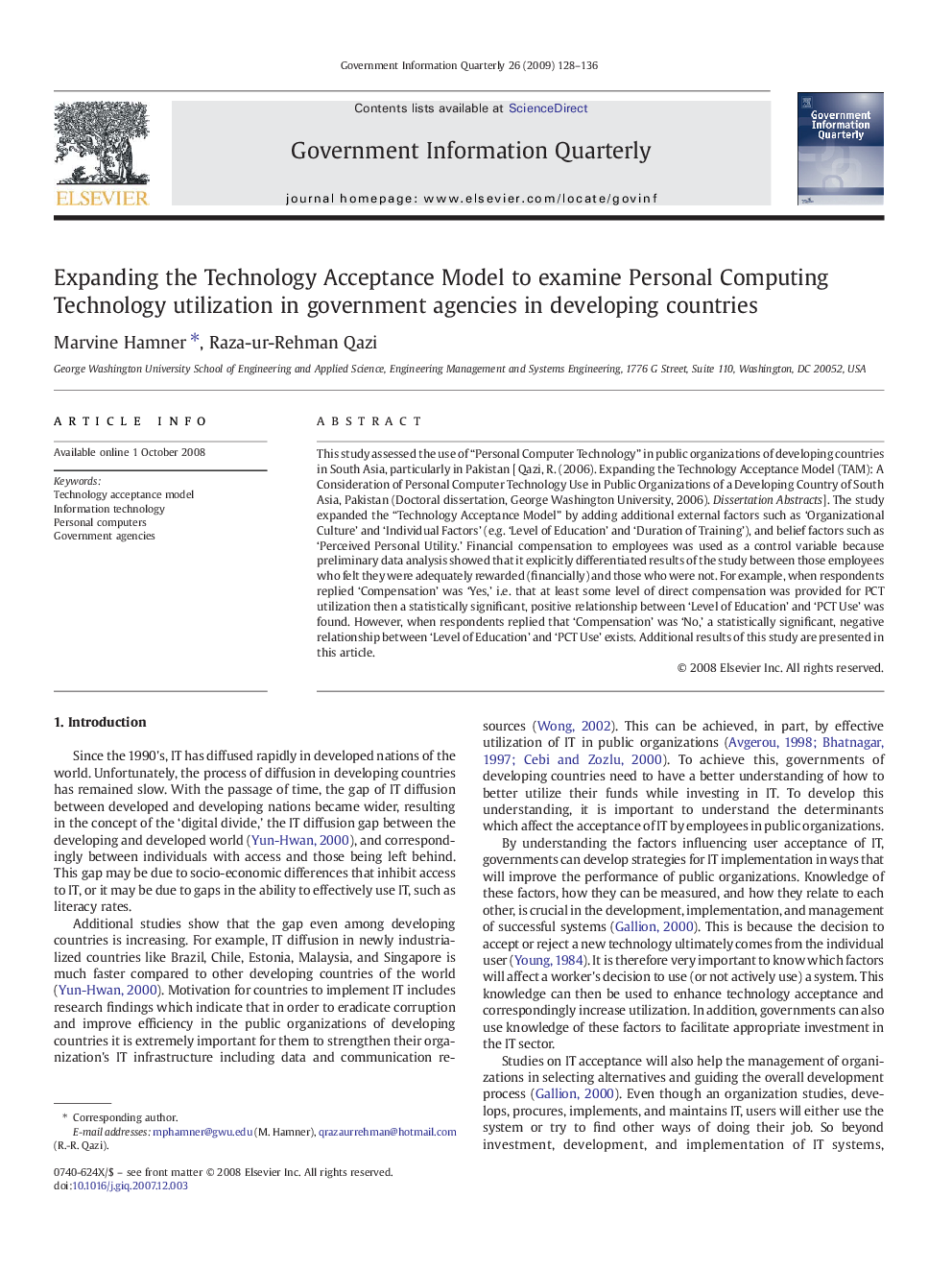| Article ID | Journal | Published Year | Pages | File Type |
|---|---|---|---|---|
| 1024792 | Government Information Quarterly | 2009 | 9 Pages |
This study assessed the use of “Personal Computer Technology” in public organizations of developing countries in South Asia, particularly in Pakistan [Qazi, R. (2006). Expanding the Technology Acceptance Model (TAM): A Consideration of Personal Computer Technology Use in Public Organizations of a Developing Country of South Asia, Pakistan (Doctoral dissertation, George Washington University, 2006). Dissertation Abstracts]. The study expanded the “Technology Acceptance Model” by adding additional external factors such as ‘Organizational Culture’ and ‘Individual Factors’ (e.g. ‘Level of Education’ and ‘Duration of Training’), and belief factors such as ‘Perceived Personal Utility.’ Financial compensation to employees was used as a control variable because preliminary data analysis showed that it explicitly differentiated results of the study between those employees who felt they were adequately rewarded (financially) and those who were not. For example, when respondents replied ‘Compensation’ was ‘Yes,’ i.e. that at least some level of direct compensation was provided for PCT utilization then a statistically significant, positive relationship between ‘Level of Education’ and ‘PCT Use’ was found. However, when respondents replied that ‘Compensation’ was ‘No,’ a statistically significant, negative relationship between ‘Level of Education’ and ‘PCT Use’ exists. Additional results of this study are presented in this article.
